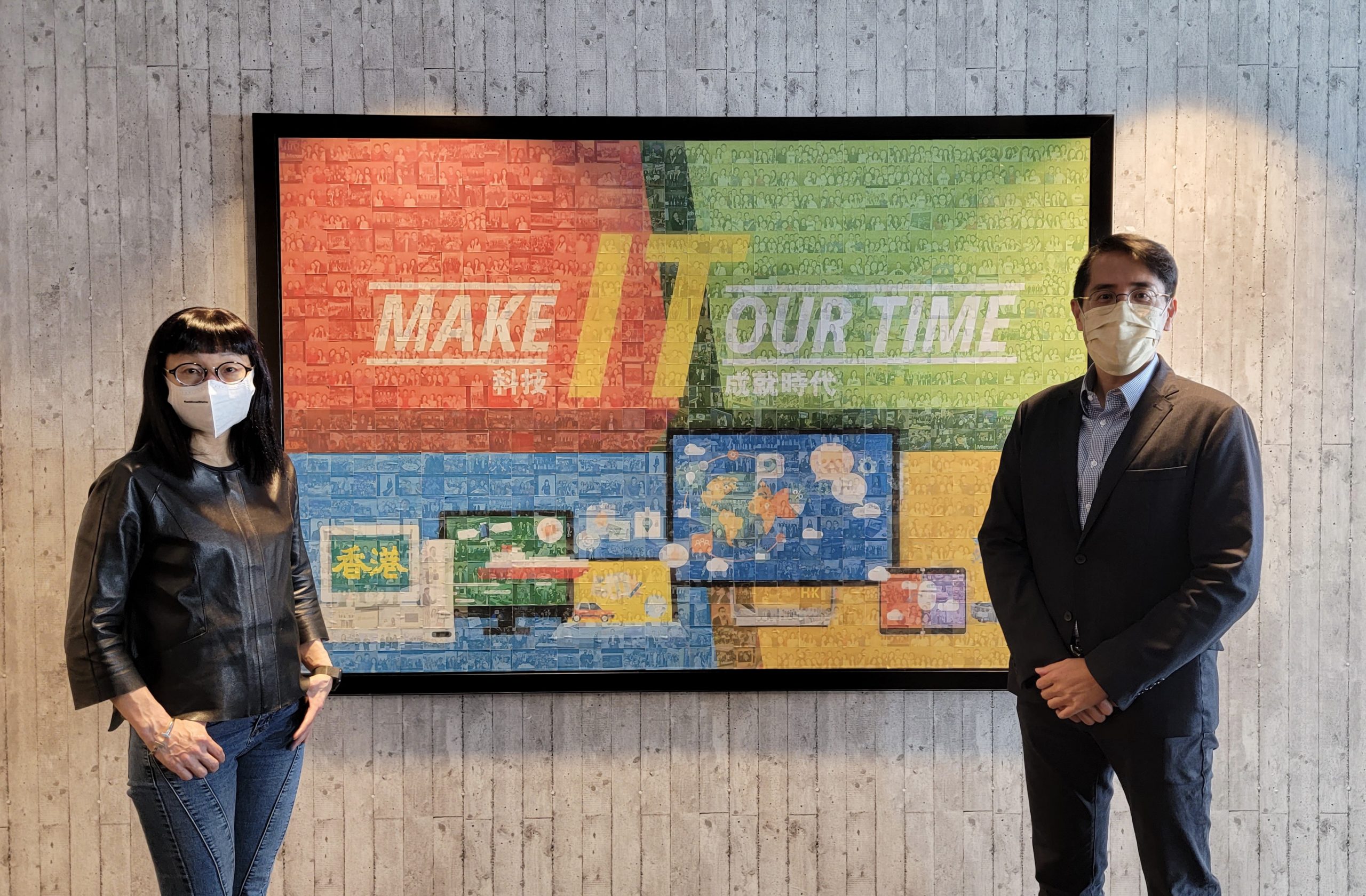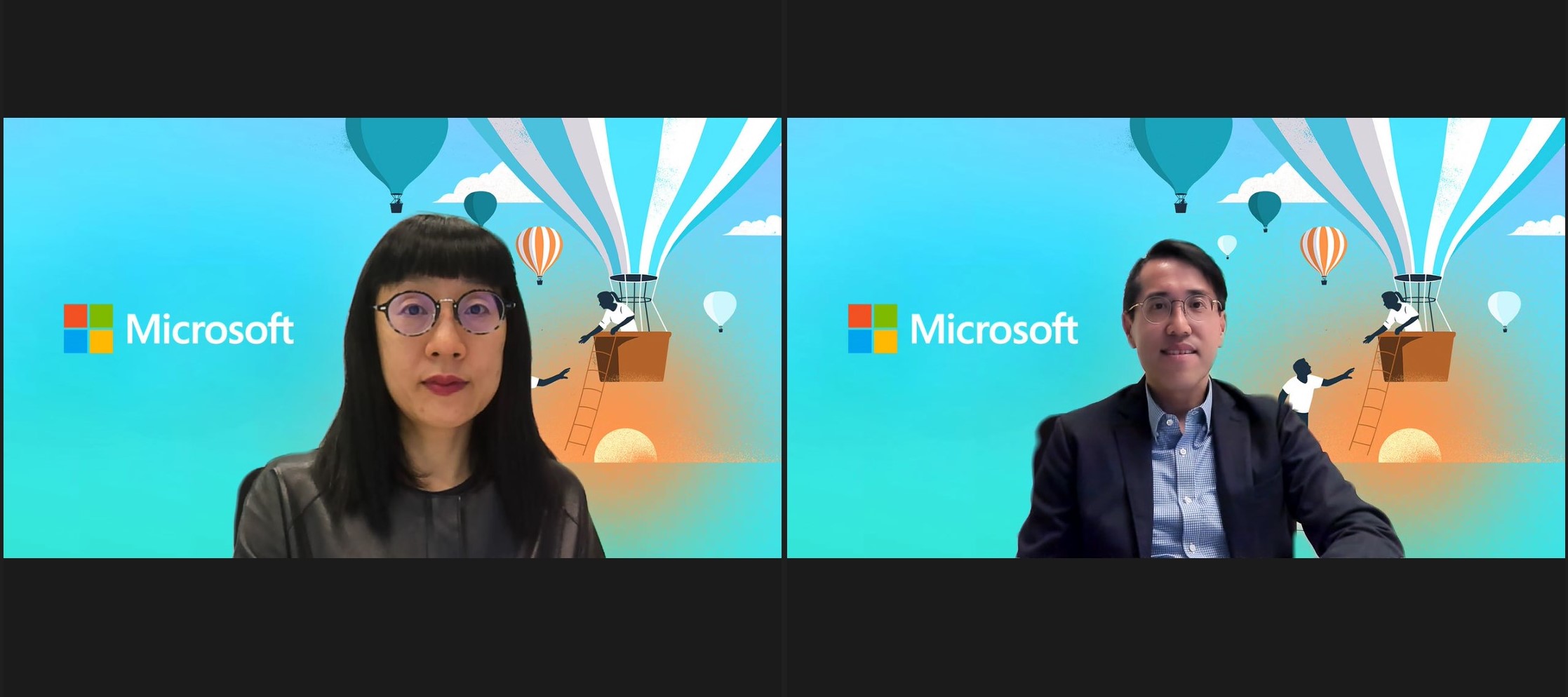- Second annual Microsoft Work Trend Index report finds employees have a new “worth it” equation. And there’s no going back.
- Report outlines five urgent trends from an external study of 31,000 people in 31 countries or markets including Hong Kong.
HONG KONG, 7 APRIL 2022 – Microsoft Corp. has released its second annual Work Trend Index report, “Great Expectations: Making Hybrid Work Work.” The company also announced new features across Microsoft Teams, Microsoft 365, Surface Hub, and Microsoft Viva to empower hybrid work and address employees’ new expectations for the workplace.
After sitting on the cusp of hybrid work for more than a year, many companies are at a long-awaited inflection point: the lived experience of hybrid work.
One thing from the research is clear: We are not the same people who went home to work in early 2020. The past two years have left a lasting imprint, fundamentally changing how people define the role of work in their lives. The challenge ahead for every organization is to meet employees’ great new expectations head on while balancing business outcomes in an unpredictable economy.
To help leaders navigate the shift, the 2022 Work Trend Index outlines five urgent trends from an external study of 31,000 people in 31 countries and markets, including Hong Kong, along with an analysis of trillions of productivity signals in Microsoft 365 and labor trends on LinkedIn:
- Employees have a new “worth it” equation. Sixty-four percent of employees in Hong Kong say they’re more likely to prioritize their health and wellbeing over work than before the pandemic, compared to 57% in APAC. And the Great Reshuffle isn’t over: 63% of Gen Z and Millennials in Hong Kong are likely to consider changing employers in the year ahead, an 8% increase from 2021.
- Managers feel wedged between leadership and employee expectations. Fifty-seven percent of leaders in Hong Kong say their company is planning a return to full-time in-person work in the coming year, similar to 58% in APAC. Sixty-two percent of managers in Hong Kong say leadership at their company is out of touch with employee expectations and 76% of managers in Hong Kong say they don’t have the influence or resources to drive change for their team.
- Leaders need to make the office worth the commute. Thirty-nine percent of hybrid employees in Hong Kong say their biggest challenge is knowing when and why to come into the office yet only 29% of leaders have created team agreements to define these new norms, similar to 32% in APAC.
- Flexible work doesn’t have to mean “always on”. Fifty-two percent of employees in Hong Kong are open to using immersive digital spaces for meetings in the next year.
- Rebuilding social capital looks different in a hybrid world. With 67% and 61% of hybrid workers in Hong Kong and APAC respectively considering a shift to full-remote in the year ahead, companies cannot rely solely on the office to recoup the social capital we’ve lost the past two years. Forty-seven percent and 43% of leaders in Hong Kong and APAC say relationship-building is the greatest challenge of having employees work hybrid or remote. Additionally, 71% of pandemic hires in Hong Kong are considering changing employers in the next year, compared to 62% in APAC.
“There’s no erasing the lived experience and lasting impact of the past two years, as flexibility and well-being have become non-negotiables for employees,” said Cally Chan, General Manager of Microsoft Hong Kong and Macau. “By embracing and adapting to these new expectations, organizations can set their people and their business up for long-term success.”
As Microsoft marks five years since the launch of Teams, more than 270 million people rely on the platform for hybrid work.
Making hybrid work work for everyone will require intentional leadership around how, when and where to work — and technology has a key role to play. Today the company is introducing new product innovation designed to improve the hybrid work experience.
- The Language Interpretation feature in Teams enables live interpreters to convert what the speaker says into another language in near real time. The meeting organizer can assign interpreters and select up to 16 source and target language combinations, while attendees will hear the translation.
- Microsoft Whiteboard in Teams offers a rich set of new capabilities that bring visual collaboration to life, including collaboration cursors, more than 50 new templates, contextual reactions, and the ability to open existing boards and collaborate with external colleagues in Teams meetings.
- To improve hybrid brainstorming, completion of action items and making decisions together without having to switch context or apps, Microsoft is introducing Loop components in Outlook mail. RSVPing for a meeting in Outlook now allows attendees to note whether they plan to join in person or virtually.
- Microsoft is introducing a new offering in Microsoft Teams Phone called Operator Connect Mobile, in partnership with some of the world’s largest telecom operators. This assigns a single business-provided mobile phone number for desktop and mobile devices, making it seamless to move calls across networks and devices with no interruptions.
- To support flexible work styles, two PowerPoint experiences, Cameo and Recording Studio, are being brought together. This will make it possible for presenters to deliver presentations with PowerPoint Live in Teams, whether or not they attend the meeting.
 Photo 1 & 2 : Cally Chan, General Manager of Microsoft Hong Kong and Macau (Left) and Kenneth Yiu, Director, Customer Sucess of Microsoft Hong Kong (Right) at “Work Trend Index 2022” virtual Media Briefing
Photo 1 & 2 : Cally Chan, General Manager of Microsoft Hong Kong and Macau (Left) and Kenneth Yiu, Director, Customer Sucess of Microsoft Hong Kong (Right) at “Work Trend Index 2022” virtual Media Briefing
To learn more, visit the Official Microsoft Blog, Microsoft 365 Blog and the new Work Trend Index report.
###
About Microsoft:
Microsoft (Nasdaq “MSFT” @microsoft) enables digital transformation for the era of an intelligent cloud and an intelligent edge. Its mission is to empower every person and every organization on the planet to achieve more.







